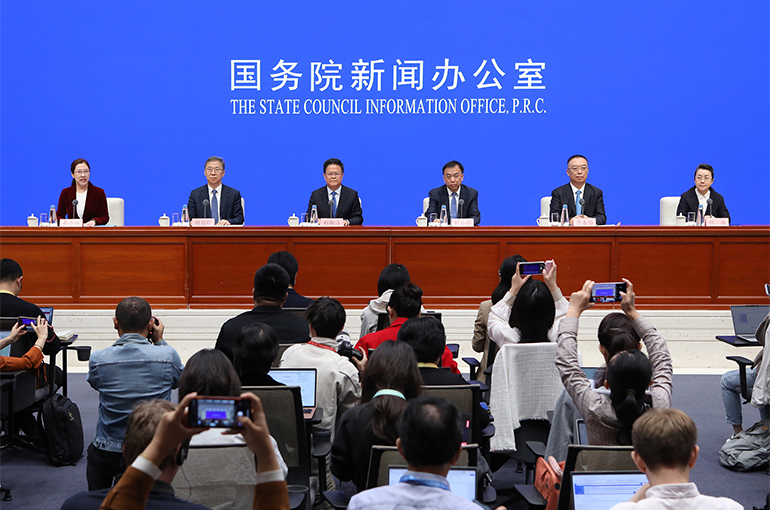 China’s State Planner Vows Step-by-Step Policies to Support Economy, Capital Market
China’s State Planner Vows Step-by-Step Policies to Support Economy, Capital Market(Yicai) Oct. 8 -- China will continue its efforts to boost the capital market and promote the economic recovery with a package of incremental policies, the country’s top planning agency said today, without mentioning any specific new measures.
The policy focus will cover five main areas -- enhancing counter-cyclical adjustment of macro policies, expanding effective domestic demand, improving assistance for enterprises, stabilizing the real estate market, and stimulating the capital market -- Zheng Shanjie, chairman of the National Development and Reform Commission, said at a press conference in Beijing today.
Strong and effective measures will be taken to encourage medium and long-term funds to enter the capital market, from investment sources such as social security, insurance, and wealth management, Zheng said.
There will also be support for mergers and acquisitions among listed companies, reform of public funds, and more policies to protect individual investors, he said.
Zheng noted that these incremental policies will aim to improve the quality of economic growth and support the healthy development of the real economy, while balancing short-term and long-term measures.
China’s economic fundamentals are unchanged, he said. The market potential is still huge, and the nation’s economic resilience and other favorable conditions remain. Recent policies have been effective in boosting the stock market and bolstering market expectations, Zheng said.
The big economic stimulus package unveiled on Sept. 24 has spawned a stock market rally, with the benchmark Shanghai Composite Index, Shenzhen Component Index, and ChiNext Index having added 27 percent, 42 percent, and 67 percent, respectively, since then.
The manufacturing purchasing managers’ index has risen and consumption during the week-long National Day holiday just ended was strong, Zheng also pointed out. The government is confident in achieving its economic and social development goals, including annual growth of 5 percent, he noted.
The government’s pro-growth policy stance remains unchanged, even though no specific additional fiscal support was mentioned today, said Su Yue, principal economist for China at the Economist Intelligence Unit.
“The overall message of the press conference remains positive,” said Su, adding that the absence of specific measures in today's announcement may be due to multiple factors, including concerns about leverage flowing into the stock market and exacerbating wealth distribution issues.
But this does not necessarily signal a negative outlook, she said, as the government aims to maintain policy flexibility and will likely adjust measures based on evolving economic conditions.
Editor: Tom Litting